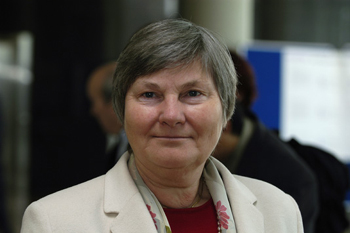Kostenregulation
von Arzneimitteln in Europa
Bundesverband
der Pharmazeutischen Industrie (BPI), Berlin
Most Member
States have implemented post-authorisation procedures which aim at evaluating
the relative therapeutic value and cost-effectiveness of authorised medicines.
These procedures may be used as an element for
- the fixing of the price
- and/or reimbursement conditions of medicines or
- for providing
guidance in prescribing decisions.
Relative therapeutic value
is used as one integrated element of the pricing and reimbursement process of
medicines - very often in the form of a pharmaco-economic evaluation - in 21 Member
States (plus Norway & Switzerland) whilst it is carried out in general health
technology assessment (HTA) processes in the U.K. and just in the beginning in
Germany with the Institut für Qualität und Wirtschaftlichkeit im Gesundheitswesen
– IQWiG.
Mandatory requirements: According to a
questionnaire done by EFPIA 17 EU-Member States (plus Norway and Switzerland)
have introduced mandatory requirements for clinical and cost-effectiveness assessments
as an element for:
- price setting (Austria, Belgium, France, Italy, Latvia, Lithuania, Slovenia and Switzerland);
- admission to reimbursement (Austria, Belgium, Czech Republic, Estonia, Finland, Greece, Hungary, Italy, Latvia, Lithuania, The Netherlands, Norway, Poland, Portugal, Sweden and Switzerland);
- guidance in prescribing decisions
(U.K. – NICE).
In these countries guidelines
have been adopted for submission of ‘pharmaco-economic’ evaluations
by companies, providing a format - in terms of data organisation and dossier.
In some cases the guidelines help to clarify the assessment process itself. The
data content varies between the countries, i. e. marketing authorisation dossier,
additional information originating from various sources such as published literature,
post-authorisation studies, meta-analysis, models integrating adaptation to local
conditions (economic, public health, medical structures).
Not
mandatory requirements: Clinical and cost-effectiveness assessments are
being used – but are not mandatory requirements – for pricing and
reimbursement decisions in other Member States such as Cyprus, Denmark, Malta,
Slovakia and Spain. Health technology assessments are also carried out in Germany
and Ireland but are not a direct part in the pricing and reimbursement process
of medicines.
Transferability: Countries do not
rely on assessments made by other countries. If countries generally accept the
evaluation they do not accept the transfer of ‘effectiveness’ data
per se, but require the data to be adapted to the concerned country conditions.
Transparency: Assessments of relative therapeutic value and cost-effectiveness carried out by EU Member States often do not comply with the basic requirements of the Transparency Directive (Directive 89/105/EC) with respect to deadlines, criteria and existence of appeal mechanisms.
Efficacy versus Effectiveness: Marketing authorisation is granted when the efficacy (as well as the quality and safety) of the product is proven. Efficacy is referred to in absolute terms although where appropriate comparisons with other therapies are available. Efficacy is not effectiveness and applies to the area of clinical trial assessment. Therefore provisions of health outcomes research have to be separate from the marketing approval process. Health outcomes research results cannot be available at the same time – and in the same depth – as the clinical and other data supporting an application for marketing authorisation.
Activities of the European Commission: G10 recomments in the Report of the “High Level Group on innovation and provision of medicines” (May 2002, recommendation 7)
- “The Commission should organise a European reflection to explore how Member States can improve ways of sharing information and data requirements to achieve greater certainty and reliability for all stakeholders, even if the decisions they take may differ.
- The
objective is to foster the development of health technology assessment (HTA),
including clinical and cost-effectiveness, in the Member States and the EU, to
improve the value of HTA, to share national experiences and data while recognising
that relative evaluation should remain a responsibility of Member States.”
The Transparency Committee approved on 9 February 2004 a questionnaire (Relative Therapeutic Value and Directive 89/105) - elaborated by DG ‘Enterprise’ (Unit F/2) - to assemble from Member States information on the assessment procedures of relative therapeutic value (of medicines) previous to marketing as well as in effective use after marketing. Member States were asked to return the questionnaire to the Commission by 30 April 2004. Results are not yet available, but it is important to monitor the developments on the European level closely.
|
|
Copyright
© 2000 - 2025
Institute for Dermopharmacy GmbH
webmaster@gd-online.de
Haftungsausschluss
